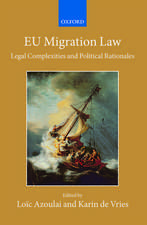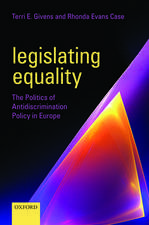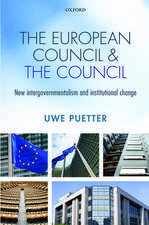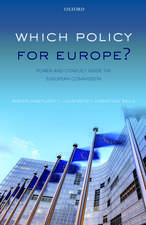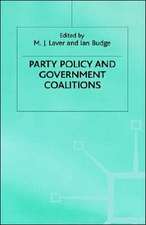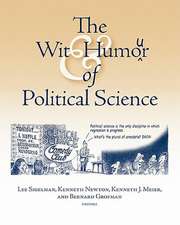The Politics of the New Europe: Atlantic to Urals
Autor Ian Budge, Kenneth Newtonen Limba Engleză Paperback – 17 iun 1997
Preț: 427.84 lei
Preț vechi: 480.72 lei
-11% Nou
Puncte Express: 642
Preț estimativ în valută:
81.87€ • 85.70$ • 67.74£
81.87€ • 85.70$ • 67.74£
Carte tipărită la comandă
Livrare economică 05-19 aprilie
Preluare comenzi: 021 569.72.76
Specificații
ISBN-13: 9780582234345
ISBN-10: 0582234344
Pagini: 428
Dimensiuni: 189 x 246 x 25 mm
Greutate: 0.45 kg
Ediția:New.
Editura: Taylor & Francis
Colecția Routledge
Locul publicării:Oxford, United Kingdom
ISBN-10: 0582234344
Pagini: 428
Dimensiuni: 189 x 246 x 25 mm
Greutate: 0.45 kg
Ediția:New.
Editura: Taylor & Francis
Colecția Routledge
Locul publicării:Oxford, United Kingdom
Cuprins
Introduction
PART I: THE NEW EUROPEAN ORDER
1. Security and peace
2. European Union and the European Union
3. The European state
4. States, territories and ethnonationalism: Variations on one, or two themes?
PART II: MEDIATING INTERNAL CONFLICTS
5. Support for democracy
6. Television, radio and press
7. Institutionalising interests
8. Environment and peace: a new politics of social movements?
9. The old politics of political parties
PART III: STEERING STATES
10. Building the institutional framework: electoral systems, party systems and presidents
11. Parties, parliaments and governments
12. Parties, governments and bureaucracies
13. Regions and localities: power-sharing with the periphery
14. Judges and courts: interpreting rules or making policy
PART IV: POLITICAL ECONOMY
15. Reshaping the welfate state
16. Managing the economy
PART V: THE FUTURE OF THE NEW EUROPE
17. Minorities and migrants: European dilemmas
18. Strategic choices for Europe
Author index
Subject Index
PART I: THE NEW EUROPEAN ORDER
1. Security and peace
2. European Union and the European Union
3. The European state
4. States, territories and ethnonationalism: Variations on one, or two themes?
PART II: MEDIATING INTERNAL CONFLICTS
5. Support for democracy
6. Television, radio and press
7. Institutionalising interests
8. Environment and peace: a new politics of social movements?
9. The old politics of political parties
PART III: STEERING STATES
10. Building the institutional framework: electoral systems, party systems and presidents
11. Parties, parliaments and governments
12. Parties, governments and bureaucracies
13. Regions and localities: power-sharing with the periphery
14. Judges and courts: interpreting rules or making policy
PART IV: POLITICAL ECONOMY
15. Reshaping the welfate state
16. Managing the economy
PART V: THE FUTURE OF THE NEW EUROPE
17. Minorities and migrants: European dilemmas
18. Strategic choices for Europe
Author index
Subject Index
Descriere
This text explains the dynamics of politics across Europe in the post-Cold War era. It compares democratisation, the transition to a market economy and the increasing economic and political integration in the countries of central and eastern Europe with experiences in Scandinavia, and southern and western Europe.

